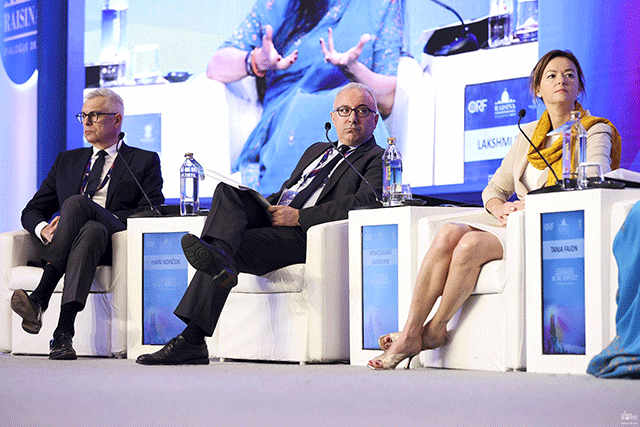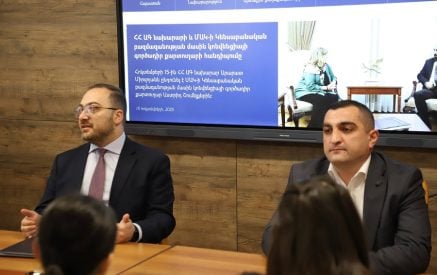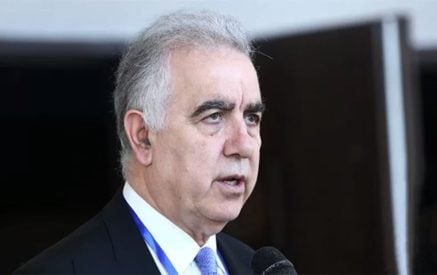On March 4, the deputy Foreign Minister of Armenia Mnatsakan Safaryan participated as a speaker in the panel discussion “Peace in pieces: New pathways for a UN that works” within the “Raisina Dialogue” conference in New Delhi.
The speakers discussed the challenges that the international security system and the rules-based world order are facing as well as issues on the UN reform agenda. They exchanged views on the involvement and role of international organizations and individual states, including small and developing countries, in the multilateral system. The importance of efficient application of international and regional mechanisms in the settlement of ongoing conflicts in different corners of the world was highlighted.
In his remarks, deputy Foreign Minister Mnatsakan Safaryan noted that since its independence and joining the United Nations Armenia has been constantly advocating for an effective implementation of multilateral platforms. In 2020 and during the subsequent period, after Azerbaijan’s aggression against Nagorno-Karabakh and Armenia, the latter felt the negative impact and consequences of the international system’s shortcomings in properly responding to the mentioned aggression. The deputy Foreign Minister added that despite the difficulties, Armenia, with the involvement of international partners, is negotiating with Azerbaijan in good faith aimed at the normalization of relations.
The deputy Foreign Minister noted that multilateralism and mechanisms of the UN system continue to be an important tool for overcoming the existing challenges. In this context, the imperative for implementing the decision of February 22 by the International Court of Justice, as a legal mechanism for the protection of international justice and international norms, regarding the request for provisional measures against Azerbaijan on the issue of the blockade of the Lachin corridor was brought to the attention of the attendees.
Read also
The priority of investing the necessary efforts by all actors in the effective implementation of the above-mentioned mechanisms was also emphasized.
Ministry of Foreign Affairs Government























































